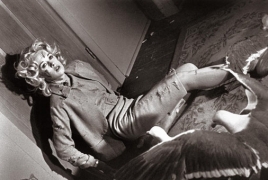
With the addition of 25 new films — including “The Birds”, “The Lion King”, “The Breakfast Club” and “Thelma & Louise” — the National Film Registry of the Library of Congress now includes 700 films that span more than a century, Variety said.
The 2016 inductees into the registry include movies long considered classics, obscure documentaries and films once too racy or avant-garde to be accepted by the mainstream. Librarian of Congress Carla Hayden made the selections after consulting with a panel of experts who make up the National Film Preservation Board.
Congress established the registry in 1988 with the National Film Preservation Act of 1988 — requiring the Library of Congress to designate and preserve films that are “culturally, historically or aesthetically” significant. Films must be at least 10 years old to be chosen.
Director Ridley Scott said he was “honored and proud” to have the 1991 feminist empowerment ode, “Thelma & Louise,” selected, noting it joined another of his films on the list. ” ‘Blade Runner’ will now have two great ladies to keep him company,” Scott said in a statement.
The designations showed how controversial films of the past can gain considerable mainstream currency over time. Director Penelope Spheeris — maker of the 1981 documentary “The Decline of Western Civilization — noted that her take on L.A.’s hard core punk rock scene had come a long way.
“When ‘The Decline of Western Civilization’ was first screened in 1980, it was perceived as shocking and criticized for glorifying the rebellious youth of the time,” Spheeris said. “To now have this accolade of the work, and the brilliant, innovative artists that are part of it, is deeply gratifying.”
It was a good year for cult films, with John Hughes’ “The Breakfast Club,” Wes Anderson’s “Rushmore,” drag documentary “Paris Is Burning” and Rob Reiner’s “The Princess Bride” also joining the list.
Among the other unusual works making the registry were the films of Solomon Sir Jones, a Baptist minister and amateur filmmaker who recorded life in the African-American communities of Oklahoma from 1924 to 1928. The short black and white films document a “rich tapestry of everyday life” — the Library of Congress announced — depicting everything from funerals and sports events to river baptisms and Juneteenth celebrations.
“Motion pictures document our history and culture and serve as a mirror of our collective experiences,” Hayden said, in announcing the new film entrees. “The National Film Registry embraces the richness and diversity of film as an art form and celebrates the people who create the magic of cinema.”

